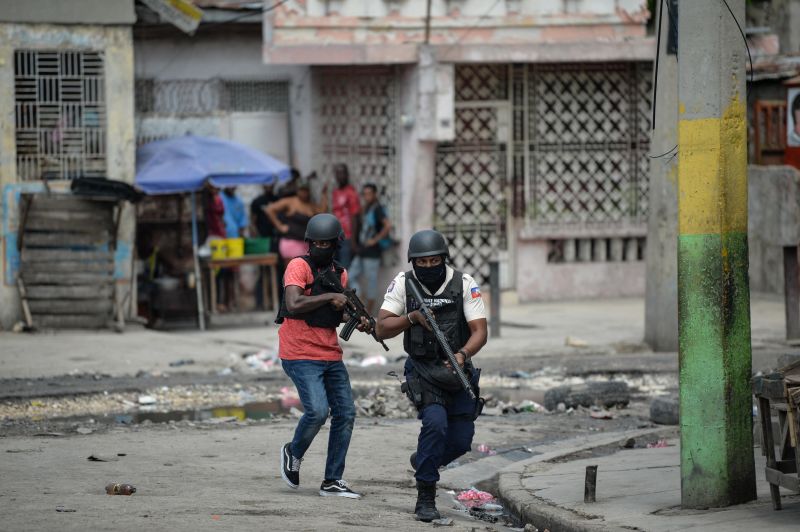
Haitian Ex-Senator Receives Life Sentence in US Prison for Involvement in President's Assassination

A former Haitian senator has been handed a life sentence by a US court for his involvement in the 2021 assassination of President Jovenel Moise, marking a significant development in the pursuit of justice
Former Haitian senator Joseph Joel John was sentenced to life in federal prison by a United States court on Tuesday for his involvement in the 2021 assassination of Haitian President Jovenel Moise. This comes after John pleaded guilty in October to three charges, including conspiracy to commit murder and kidnapping outside the US, as well as providing support and resources for the plot to kill Moise. He was extradited from Jamaica in May 2022.
A criminal complaint filed in 2022 alleges that John confessed to assisting in obtaining vehicles and firearms for the plot. He also admitted to attending a meeting with co-conspirators a day before Moise's assassination, according to an affidavit from an FBI agent.
A mourner holds a photo of late Haitian President Jovenel Moise during a memorial ceremony in Port-au-Prince, Haiti, July 20, 2021.
According to the US Department of Justice, John was the third man charged in connection to the assassination of Moises. Mario Antonio Palacios and Rodolphe Jaar were arrested and charged in 2022.
Jarr, a dual citizen of Haiti and Chile, was convicted and sentenced to life in prison in June after pleading guilty to three charges, including conspiracy to commit murder or kidnapping outside of the United States and providing material support that led to death, as outlined in the plea agreement.
According to court records, Palacios, a citizen of Colombia, is set to make a court appearance later this month.
A number of Haitian American citizens and at least 20 Colombians participated in the plot, according to the Department of Justice.
Police officers patrol a neighborhood amid gang-related violence in downtown Port-au-Prince on April 25, 2023.
Richard Pierrin/AFP/Getty Images
UN report indicates that gang violence is now reaching rural areas of Haiti. Since the assassination of Moise, the country has experienced escalating turmoil, marked by the expansion of gang activity and a surge of violence throughout the impoverished nation. Prime Minister Ariel Henry, Moise's successor, has been facing challenges in addressing the ongoing violence.
Gang attacks on rival villages have involved beheadings, rapes, and kidnappings, as reported by the UN Human Rights Office and the UN Integrated Office in Haiti last month.
In October, the UN Security Council authorized the deployment of a multinational support mission to assist Haiti's national police in combating gang violence. Kenya has taken the lead in this mission and has committed to sending 1,000 police officers.
However, the announcement did not specify when the security forces would arrive in Haiti, and the deployment has been tied up by legal challenges.








